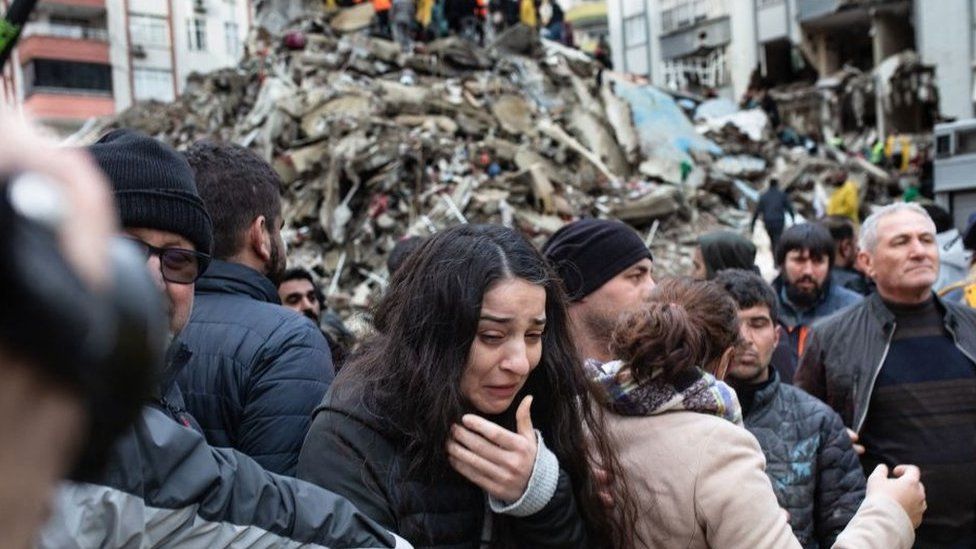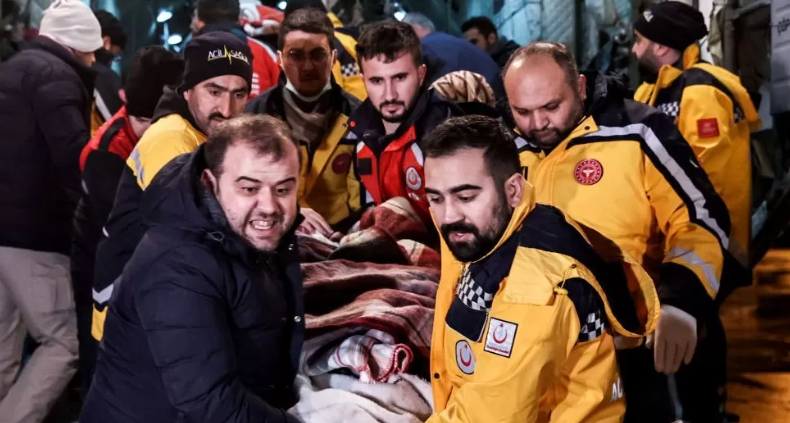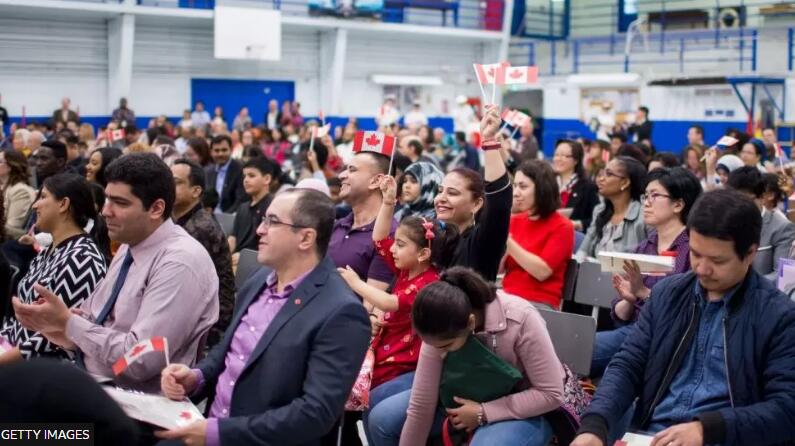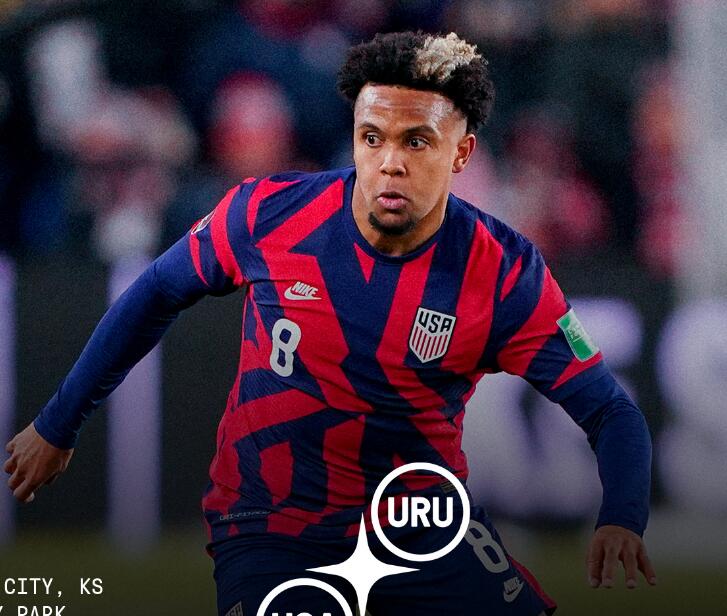Aid is being stepped up in southern Turkey and northern Syria, after a huge earthquake devastated the region, leaving more than 7,000 people dead.
The 7.8 magnitude quake struck near Gaziantep, Turkey in the early hours of Monday, reducing blocks of flats to rubble at a time when most were asleep.
It is a region where there has not been a major earthquake for more than 200 years, or any warning signs.
National governments of many countries including the UK, the US, China and Russia are providing aid, including search and rescue experts.
And many charities are also launching appeals and sending teams to the area.
The British Red Cross was one of the first major UK charities to launch its appeal.
It is working in conjunction with the Turkish Red Crescent and the Syrian Arab Red Crescent, and is already on the ground “providing urgent support during these critical hours” and evacuating people to safety.
Many of those injured have lost their homes and all their possessions, surviving in freezing conditions or rain with little shelter or food.

Oxfam is another large charity to have launched an appeal.
It said it would focus on providing “protection, water and sanitation, shelter and food”, while also assessing the longer-term needs of people in the aftermath of so much destruction.
Its spokesperson in Ankara, Meryem Aslan, said local people were “shell-shocked” and struggling to cope “following two big earthquakes and over 60 aftershocks”.
“The scale of destruction is vast. People are still in shock and fear, they don’t even have time to mourn the lost ones,” she said.
- World rallies to support Turkish quake victims
- Survivors in streets as rain hampers quake rescue
- Why was the earthquake so deadly?
Turkish and Syrian communities in the UK – many searching for information about missing loved ones – have launched their own local donation drives – many using Facebook to reach volunteers and donors.
A spokesman for the British Turkish Association, based in Luton, said the reaction of “all communities” in London had been “emotional”.
Atilla Ustun, 55, also a chairman of the Luton-Turkish Community Association, spoke to the PA news agency from Heathrow as he helped load a Turkish Airlines cargo plane with more than 300 boxes of donated clothing, medical supplies and aid for babies.
“All the communities in Luton and around have swarmed to donate… Just locally, in Luton itself, we’ve raised around £20,000,” he said, “but we know that in general, I think in London it’s now between £200,000 and 300,000.”
Ali Topaloglu, from the Nottingham Turkish Community, is part of a campaign asking for donations of tents, blankets and clothes for Turkey, as well as money for food parcels.
‘The cold will kill’
The region hit by the earthquake is home to millions of refugees displaced by the Syrian civil war, with northern areas still embroiled in conflict.
It was already a major hub for NGOs (non-governmental organisations) and charities – many of whom have been there for years, as part of cross-border support for those displaced by war.
Organisations including Save the Children, Unicef and Médecins Sans Frontières (Doctors Without Borders) have all launched appeals following the earthquake.
MSF provided immediate support to 23 healthcare facilities across Idlib and Aleppo in north-west Syria, where hospitals and clinics are “overwhelmed” and access to the war-torn region for external medical personnel can be difficult.
The charity is providing emergency medical kits and staff to reinforce local healthcare teams who are “working around the clock to respond to the huge numbers of wounded”.
“The needs are very high in north-west Syria as this quake adds a dramatic layer for the vulnerable populations that are still struggling after many years of war”, said Sebastien Gay, head of MSF in Syria.
Save the Children said it had spent a lot of time so far checking on needs, and what was working logistically.
James Denselow, UK head of conflict and humanitarian advocacy, said: “Providing shelter is the most urgent type of aid from our perspective, because the cold will kill people in ways that are less spectacular than the earthquake, but equally deadly.”
He said with airports out of action and hospitals and clinics collapsed, “all the sort of places we would normally use are not necessarily accessible”.
He added the aid route to northern Syria remained inadequate.
“Northern Syria is an area where we were dealing with severe malnutrition and far more huge humanitarian needs than in other environments before this happened,” he said.
“If you’re a vulnerable population and then something else like this happens on top of that, obviously what happens to you is likely going to be far worse.
“We see that with very basic things like children’s physiology. The ability of a child to survive crash injury from a building falling on them is far reduced if they are malnourished.”
He added: “This is going to be about getting blankets, food, clean water, education kits – so children don’t find their studies completely devastated by this – to them.
“We need to keep those people warm, we need to keep young infants warm.”
David Wightwick, CEO of medical aid charity UK-Med, said his team were heading to Turkey to assess where their help was most needed, before mobilising their register of hundreds of NHS medics.
“You can imagine in an area the size affected and with the numbers affected that’s not necessarily an easy decision to make,” he told BBC Radio 4 Today programme.
Typically, the larger humanitarian organisations do not ask for donations of blankets or clothes – but prefer money.
“What people give today might not be what people need tomorrow,” states Oxfam, highlighting the delays in aid reaching victims because of shipping times from the UK.
“Our approach is to work with local organisations and communities on the ground, rather than sending blankets, clothes and other donated goods from the UK”, the charity’s humanitarian lead Magnus Corfixen said.
“In emergencies, we often do cash distributions because it’s quicker, allows people to get what they most need and also helps the local economy to recover. From our years of experience, we have found that as well as giving people choices, cash also helps to preserve their dignity.”


